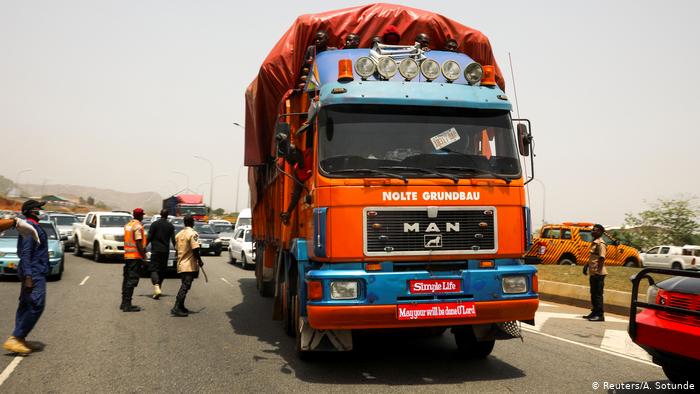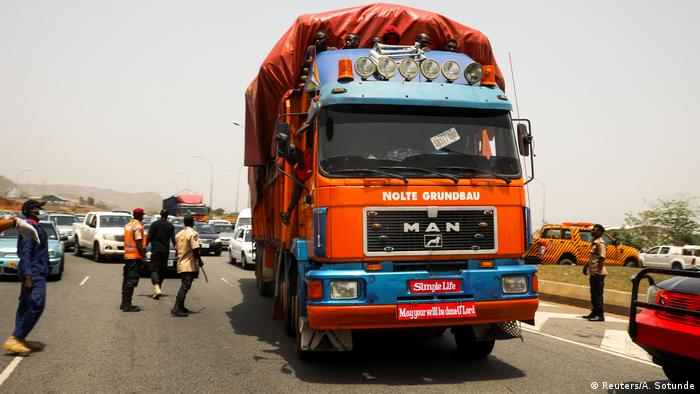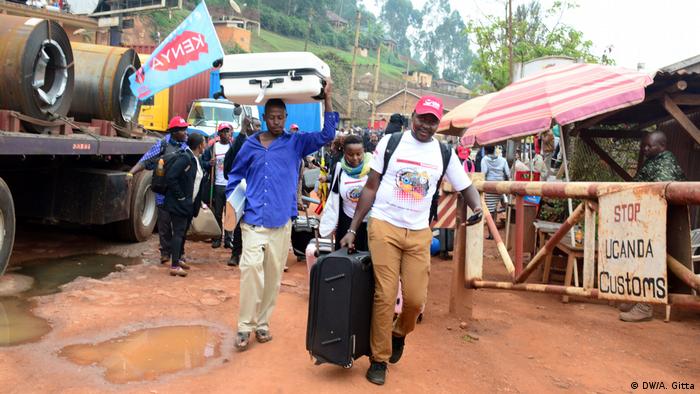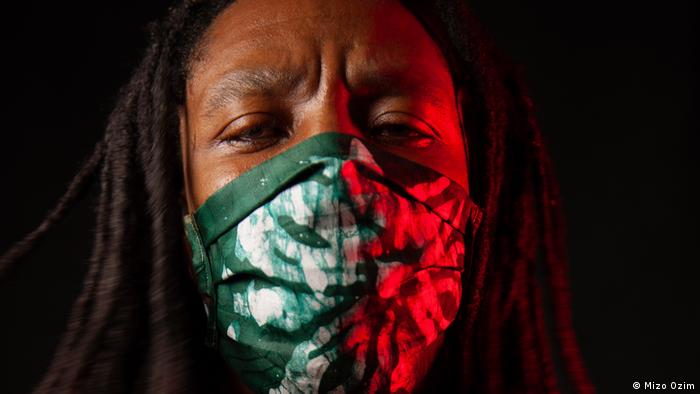Many African states have closed their borders due to COVID-19. The movement of goods continues, albeit slowly. For people, transiting countries is difficult and the consequences for workers and small businesses are dire.
2020 should be the year of open borders in Africa. After years of negotiations, the concrete implementation of the African Free Trade Area (AfCFTA) was finally on the agenda. The common African passport was also to become a reality this year.
But then came the coronavirus pandemic — and 43 of the 54 states in Africa closed their borders as a result. This figure was published by the Africa Centre for Disease Control and Prevention (Africa CDC) in early April.
It is true that many countries allow goods to pass through, at least partially. However, the consequences for the continent, especially the long-term effects, can hardly be estimated. The African Union warns that border closures for people and goods could have a “devastating effect on the health, economy and social stability of many African states” that rely on trade with neighbors.
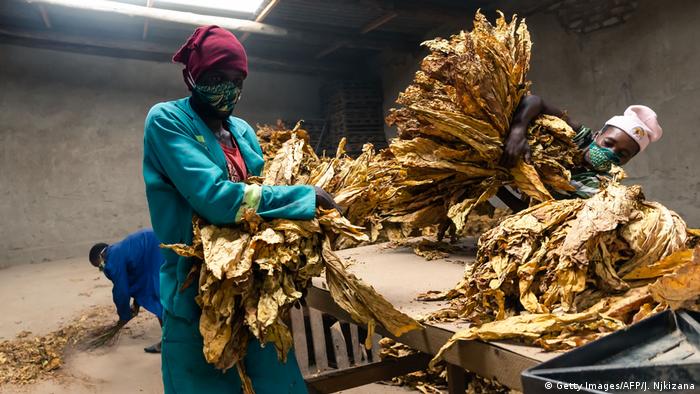 Tobacco is the second largest source of foreign exchange income for Zimbabwe. Producers now fear a slump in trade profits
Tobacco is the second largest source of foreign exchange income for Zimbabwe. Producers now fear a slump in trade profits
This danger is quickly becoming a reality. Earlier this month, the GAVI vaccine alliance warned that vaccines are running out in some African countries due to border closures and restricted air traffic. Although GAVI says the problem has now been resolved, the example shows how much health care on the continent also depends on porous borders.
Africa thrives on mobility
The restricted transportation of goods is only one of the negative outcomes of border closures Africa is heavily dependent on the mobility of its workforce, explains to Robert Kappel, Professor Emeritus of the Institute for African Studies at the University of Leipzig. But right now, that workforce is stuck in place.
“Mobility is part of everyday life for most Africans,” Kappel told DW. “You go somewhere else for a while, work, earn income and send it to your family, acquire and bring back skills, create networks across borders,” Kappel said. The economist is certain that the longer mobility is restricted, the more African states will suffer from reduced economic growth.
Kappel cites Ivory Coast as an example. Just as Western European countries depend on eastern European harvest workers, many people come from Burkina Faso to work on Ivorian cocoa plantations.
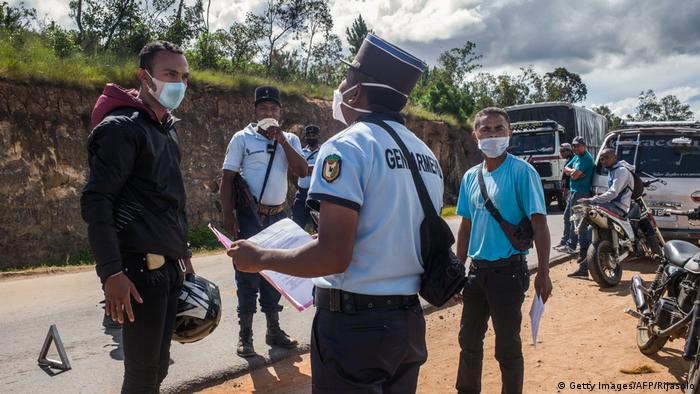 Traffic control in Madagascar: Many countries have introduced internal roadside checks to curb COVID-19
Traffic control in Madagascar: Many countries have introduced internal roadside checks to curb COVID-19
Even people who have been living in Ivory Coast for a long time are now being sent back because of the COVID-19 pandemic. Kappel said the reason for their expulsion is simply because they are foreigners. ”Cote d’Ivoire, one of the world’s largest cocoa producers, has been relying on the exchange of workers for decades and now suddenly has to limit this,” he said.
Southern Africa moving in the ‘right direction’
For goods transported by truck, meanwhile, the restrictions on the continent appear to be slowly easing. That’s according to Sean Menzies, responsible for road freight transport at the South African logistics company CFR Freight. The company’s trucks transport goods to almost all neighboring countries and member states of southern Africa’s regional bloc, SADC, including food to Zimbabwe and mining equipment to the Democratic Republic of Congo or to Zambia. The spread of coronavirus and the resulting border closures brought restrictions for CFR Freight.
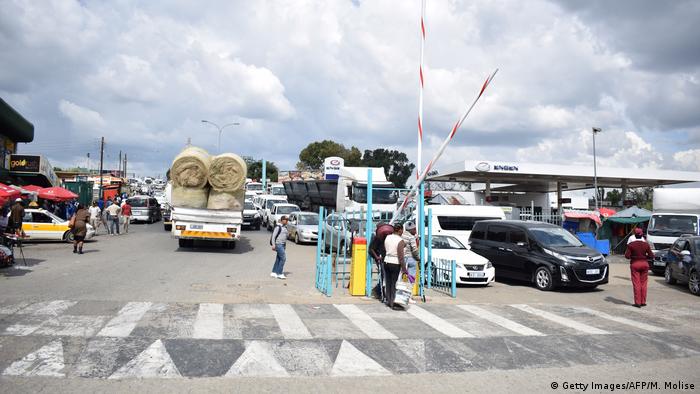 Border post between South Africa and Lesotho: South Africa has nearly 6,000 cases of coronavirus whereas Lesotho has none.
Border post between South Africa and Lesotho: South Africa has nearly 6,000 cases of coronavirus whereas Lesotho has none.
Initially, only essential goods such as food, hygiene products or personal protective equipment could be transported across borders, Menzies said. Shortly afterwards, the regulations were also relaxed for cargo that reaches South Africa by sea but is destined for other SADC countries. These containers may be transported across borders, regardless of whether their contents are vital or not.
Menzies said the new regulations and controls will not delay the transport too much. ”At the very beginning there were problems and a lot of confusion about what is required. But within a week, the customs officers understood and implemented the guidelines,” said the logistics expert. From then on, he said, traffic at the border posts has been fairly smooth. Menzies praised the cooperation in the region regarding the movement of goods during the pandemic.
COVID-19 test for East Africa truck drivers
The East African Community (EAC) is also trying to simplify the transport of goods between member states. On Monday the EAC issued new guidelines. Among other things, the regional bloc suggested that all border crossings should be kept open for freight traffic so that trucks can be cleared as quickly as possible.
EAC member states are interlinked at many levels, Kenneth Bagamuhunda, Director General for Customs and Trade in the Secretariat, the executive body of the EAC, said. ”This forces us to really come together and issue regional guidelines,” Bagamuhunda told DW in an interview. Although the guidelines are not binding, they are intended to enable joint action.
The situation at the borders in East Africa could not be described as “very stable,” it was changing from day to day. But things were beginning to improve. Some states had started to test all truck drivers. ”This led to some delays at first,” Bagamuhunda said.
30 kilometers (18 miles) — that’s how long the traffic jam was last weekend at the Kenyan town of Malaba on the border with Uganda, a Kenyan media house, Citizen TV, reported. Because truck drivers are particularly mobile, there is a risk that they will contribute to the spread of the virus. At least 20 of the 79 officially registered cases in Uganda are truck drivers, according to the BBC.
The EAC’s new guidelines now require testing for all truck drivers. The states are also to set up special stopping points so that drivers have as little contact with the population as possible.
Impact on farmers and small businesses
Small and medium-sized companies that depend on cross-border trade are particularly threatened by delays and restrictions, economist Robert Kappel said. ”Many of the farmers or small entrepreneurs must now try to sell their products elsewhere but often the local market is limited.”

